Not many people afraid of heights would jump out of an airplane willingly. Most people don't live out of their car for two years. But that's exactly what Mark "Ranger" Jones was doing when he began his Army career.
Jones is a retired master sergeant and chief executive officer of the Ranger Group, which started as a security firm and grew to include work in construction and information technology. Created just a few months after Jones left the Army, the Ranger Group is now a service-disabled, veteran-owned 8(a) company.
As Jones puts it, he's "living the dream."
One of the central philosophies of the Ranger Group is to give everyone the opportunity to do their best, Jones said. He hires as many veterans as possible to give them that chance, because they are flexible workers who "can deal with anything."
The ability of current and former Soldiers to adapt to any situation comes from their character-something Jones learned as a noncommissioned officer.
"You can't judge an individual by how much money they make, but you can always judge someone by their character," Jones said. "Those are core competencies of an NCO that I was taught, that I believe in today and I'll carry with me until eternity."
Having veterans working for the company gives the Ranger Group an advantage that corporate America doesn't have, Jones believes. Ultimately, Jones would like to educate veterans in business so they can eventually start their own companies.
Married to his high school sweetheart, Lorrie, Jones joined the Army in his sophomore year of college because of his wife's medical condition. After Lorrie suffered a aneurism, he wanted to be able to provide her with good medical benefits, so he went to a recruiting station. The only recruiter present at the time was from the Army, Jones said.
"He goes, 'when do you want to come in'' I said 'tomorrow.'"
The recruiter suggested that he join the Army as a cook with the Airborne Rangers. "Well, I had no idea what an Airborne Ranger was. Nobody told me that I would have to jump out of a perfectly good aircraft," Jones laughed.
"I ended up going to Fort Lee and completing cook's school and then (was) on my way to Fort Benning (where) I had to go to jump school, which I didn't know. I show up at jump school, and I see the guys jumping out of towers, and it's looking exciting, and all of a sudden I get off the bus and everybody's calling me 'airborne, airborne!' I had no idea," he said.
The next day, Jones was one of the Soldiers in line to jump off of a tower. He managed to stick to the back of the line and never got off the tower, but his strategy didn't work when the Rangers took to the air. Jones explained the planes were loaded back to front, and what he thought was the end of the line was actually the beginning.
"I was completely and totally petrified of heights," Jones said. Nevertheless, Jones forced himself out of the plane (with no lack of encouragement from his trainer) and took the plunge. "It was probably noon, but it was my first night jump because my eyes were closed tight the whole way down."
At the time he was recruited, and for some time after, Jones was living out of his Volkswagen. Money was tight, but he felt fortunate that the Ranger battalion leadership gave him the opportunity to take care of his family while still being 100 percent involved in the military.
"Living in a car was a completely unbelievable experience," Jones said. "It was really tough to do that. But working in a Ranger battalion, those guys also gave me an opportunity to do extra things on the weekends. I started to do ice carvings on the weekends to make extra money to help pay for my wife's medical condition."
While completing an ice sculpture in Savannah, Ga., one day, Jones was recruited by a group of actors to participate in a movie. The group, which included Morgan Freeman and Denzel Washington, tracked him down at Hunter Army Airfield and convinced his commander to let him join the cast of "Glory" as an Army liaison.
"I took off to Hollywood and started training these guys," Jones recalled. He said that as a Ranger, he was given a specific mission and he was going to carry it out to the letter.
"I didn't want to hear any sniveling. Morgan couldn't walk and chew gum," Jones joked. "Then I found out, bless his heart, he was in the Air Force, and he got kicked out of the Air Force, so I really gave him a hard time! But I worked with them, and I had a great time, and it spawned a couple of relationships. I still do things constantly with Denzel and Morgan and Matthew (Broderick), and they still help me find a way to give back to others in our military today."
The relationships Jones built while working on the set of "Glory" play a large part in his efforts with the Army today. Denzel Washington, now a good friend of Jones', works with him and the Fisher House Foundation regularly, Jones said. Recently, Jones helped open the 43rd Fisher House in Los Angeles, at the Veterans Affairs hospital.
The Fisher House Foundation is an organization that "donates 'comfort homes,' built on the grounds of major military and VA medical centers. These homes enable family members to be close to a loved one at the most stressful times-during the hospitalization for an unexpected illness, disease, or injury" according to the foundation's Web site.
"I am a proud trustee of the Fisher Foundation," Jones said. "The reason why the Fisher Foundation is so dear to my heart and what I do is because I came in the military because my spouse had a medical condition." Fisher House didn't come into existence until 1990, after Jones entered service.
When he found out about the Fisher House, Jones immediately knew he wanted to help, and he has been working with the foundation for four years.
"Giving back is incredible, and I feel very honored-it's a pleasure to be able to go back and give to our troops," he said.
Every year Jones takes 300,000 to 400,000 steaks provided by Outback Steakhouse to Iraq and feeds the troops there for two weeks. Jones is working to open popular chain restaurants like Outback Steakhouse on various installations to provide work for veterans, spouses and dependants.
Because of the leadership abilities he developed in the Army, Jones is able to speak with billion-dollar companies and convince them to hire veterans. He has served as an aide to a respected general, and gone skydiving with former president George H.W. Bush-as his jumpmaster. The values Jones learned as an NCO are applied to the Ranger Group and in other aspects of his life today, helping him to achieve his goals, Jones said.
"I should have paid the Army for what I was doing. I should have had to pay the Army for the type of leadership that I was surrounded by. Being an NCO was the best thing that could have ever happened to me," he said.
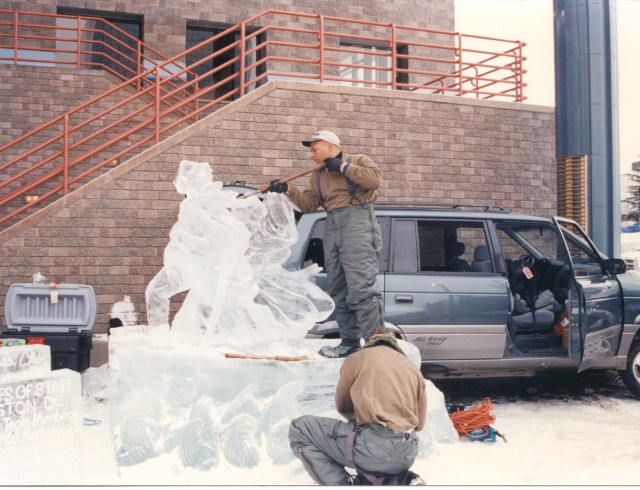
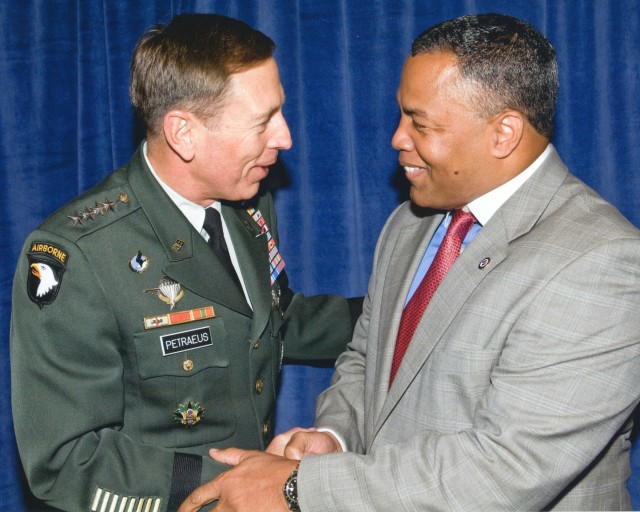
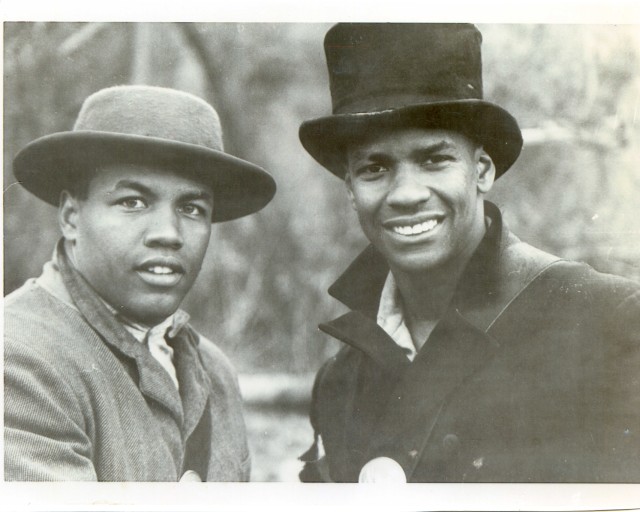
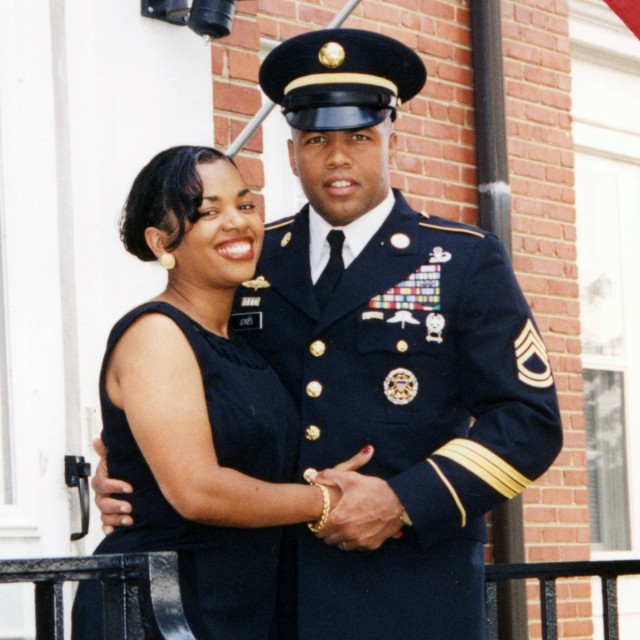
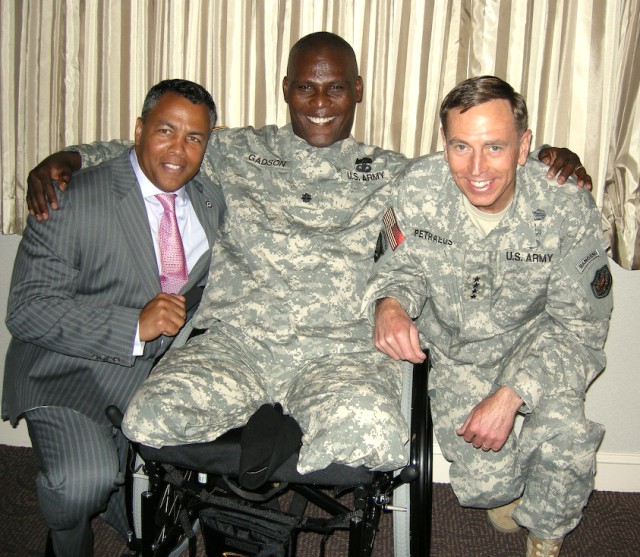
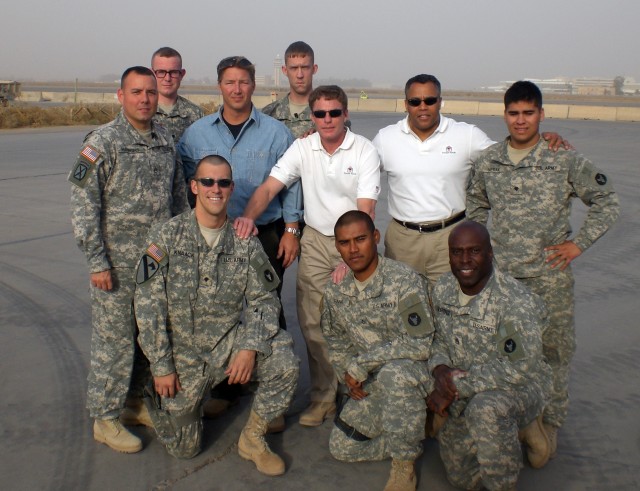
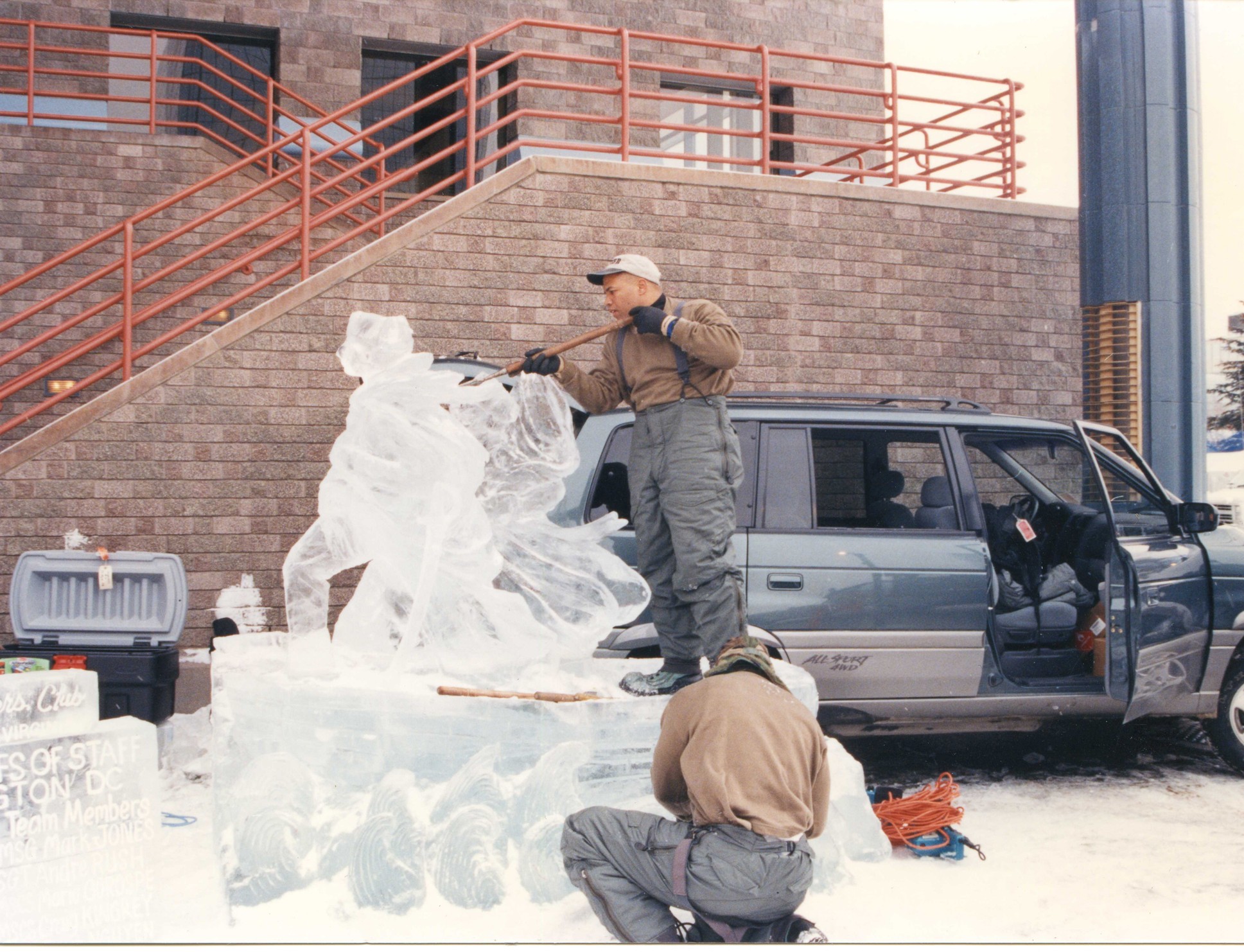
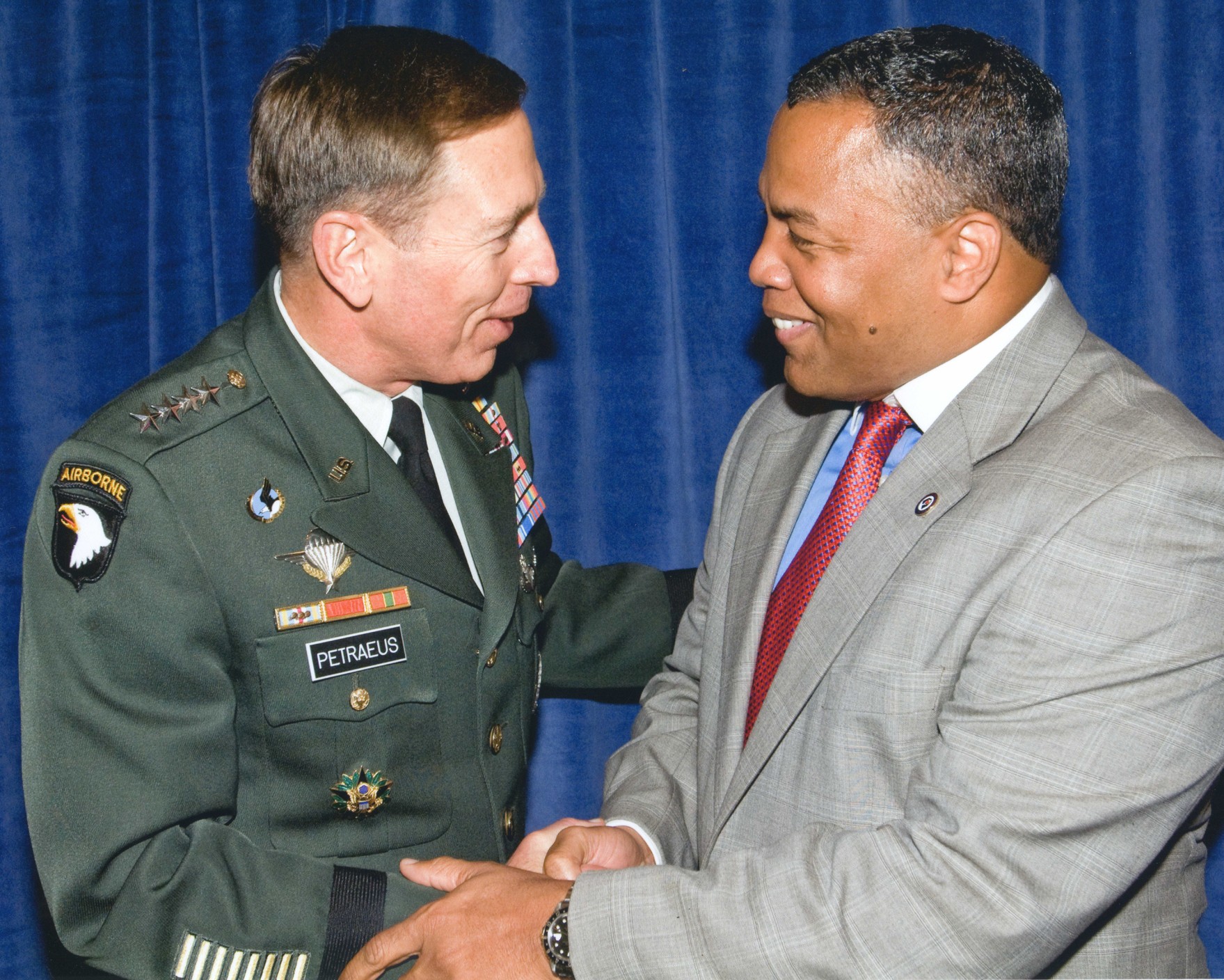

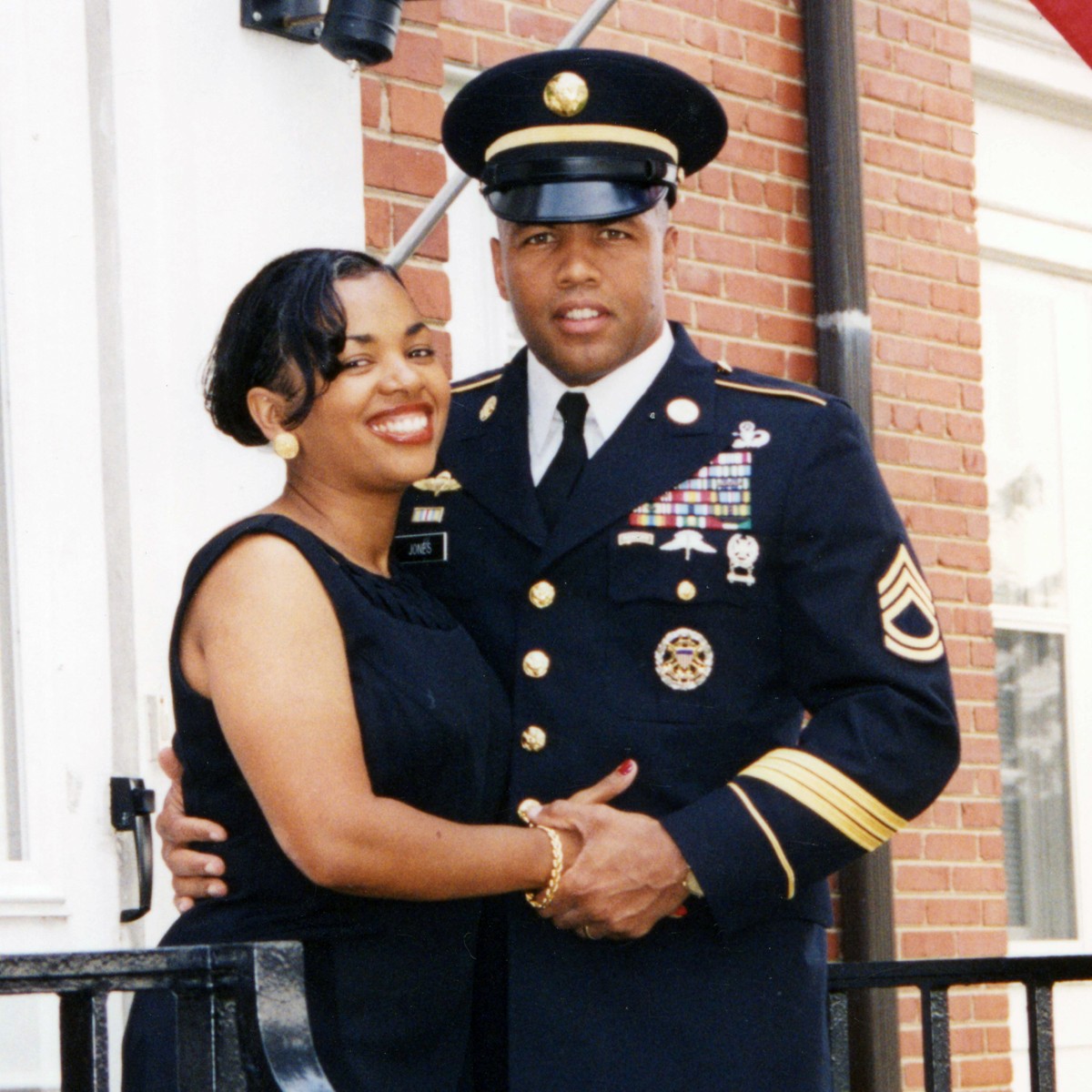

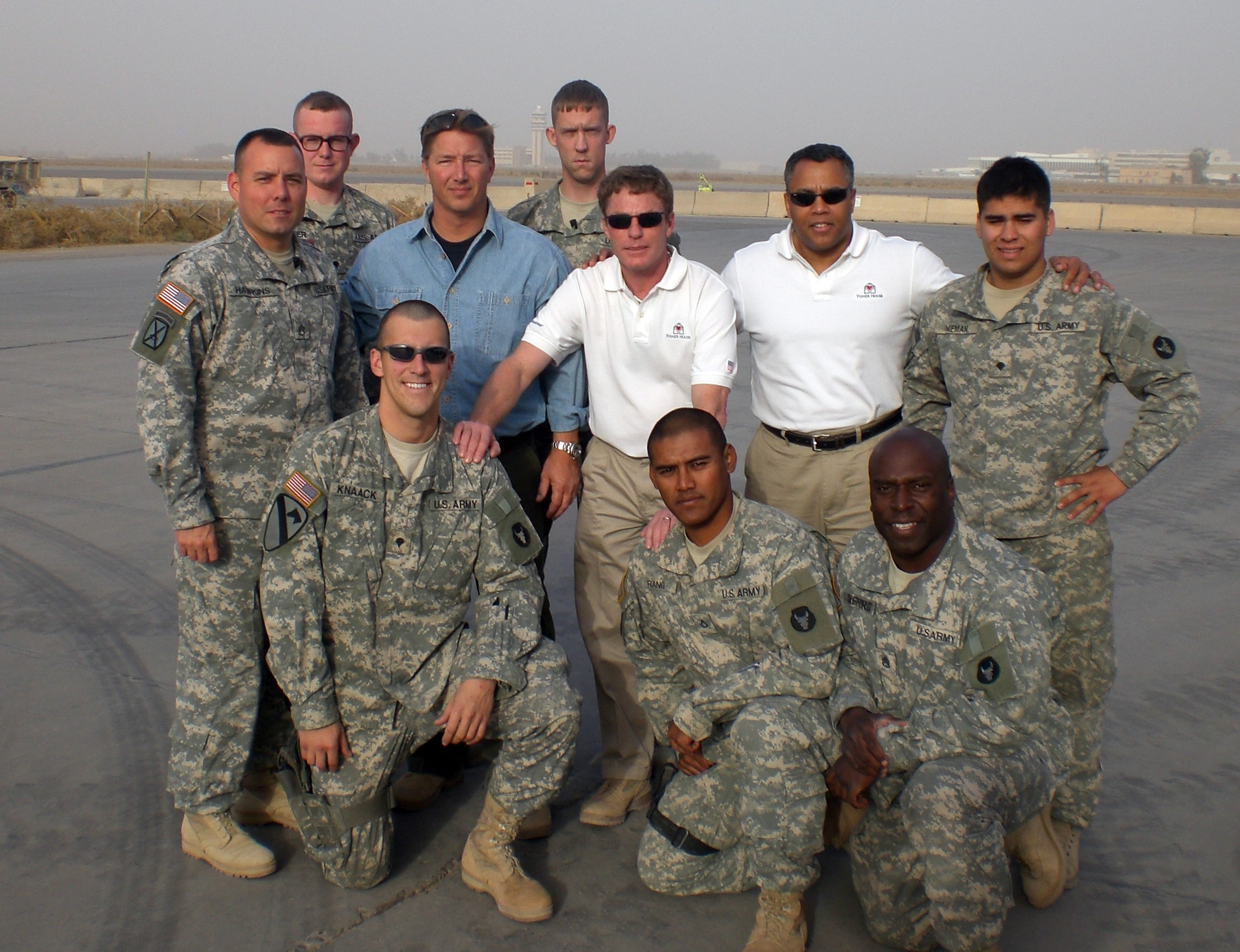
Social Sharing